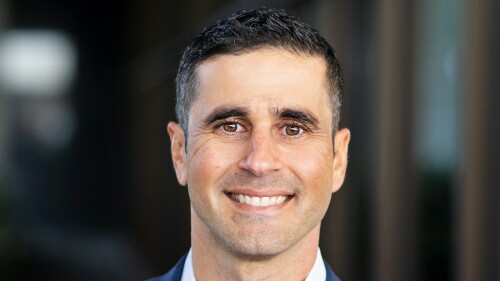Plans call for removing tons of the waste material to make cement for concrete.
As Georgia Power transitions from coal to natural gas and renewables to generate electricity, the utility company has entered into an innovative partnership with a technology firm that aims to transform the ash left behind from decades of burning coal into an ingredient for concrete for roads and bridges.
The deal between the utility, which provides power to 2.7 million customers, and South Jordan, Utah–based Eco Material Technologies, announced a few months ago, calls for about 600,000 tons (around 544,000 metric tons) of coal ash to be harvested each year from the ash pond and landfill at Plant Bowen, a coal-burning power plant near Cartersville, Georgia, processed, and sold to manufacturers for use in making concrete. The effort, which will begin removing ash in 2024, eventually will use more than 9 million tons (nearly 8.2 million metric tons) and will be the biggest single coal ash reuse effort in the United States, according to the utility.
“Finding and securing these opportunities to beneficially use coal ash will not only reduce and save space in landfills, but will also serve as a financial tool to help offset the cost of ash pond closures for our customers,” said Aaron Mitchell, vice president of environmental affairs for Georgia Power, said in a press release.
Coal ash is the residual material that remains after coal is burned to create the stream that spins a power plant turbine to generate electricity, Kelly Richardson, a spokesperson for Georgia Power, explained in an email. The amount that Eco Material will remove from the Plant Bowen site and turn into a concrete ingredient amounts to much, but not all, of the ash that the plant has generated.
Most of the ash will come from the Plant Bowen ash pond, which currently covers about 254 acres (nearly 103 ha), according to Georgia Power spokesman John Kraft. The remainder will come from the landfill, which is 147.5 acres (nearly 60 ha) in size, according to a 2018 engineering report on the Georgia Power website.
The plan calls for Eco Material to process the ash in a facility that currently is being built at Plant Bowen. “This facility will remove contamination, dry, resize, and prepare the ash for sale,” Grant Quasha, CEO of Eco Material Technologies, explained via email. “After this process is completed, Eco Material will sell the repurposed ash to concrete manufacturers to mix with their cement and other materials to pour concrete with significantly reduced emissions.”
Although ash can be used to make a variety of different building materials, including road base, the project in Georgia will have a narrower focus, with most of the ash eventually being used in concrete, according to Quasha.
“Our agreement with Georgia Power is really an equal partnership—we both benefit from using this material in concrete, as it is more cost-effective and in demand than traditional carbon-heavy Portland cement,” Quasha said. “Some small amounts may be used for other purposes, but the vast majority will be sequestered in concrete.”
Using coal ash to create concrete not only eliminates the need to store it, “but reuses it in ways that help our communities,” according to Quasha.
“Green cement” can be made at room temperature with virtually no emissions, according to the company’s website. That gives it a significant advantage over conventional cement, which an Environmental Protection Agency fact sheet describes as a major source of greenhouse gas emissions, putting 73.9 million tons (67 million metric tons) of carbon dioxide into the atmosphere. Those emissions amount to 10 percent of all industrial emissions in the United States.
In addition, the repurposing of the ash “helps decarbonize concrete while also helping to significantly reduce the cost to create much-needed long-lived infrastructure in our country,” he said. He predicted that the project will be economically beneficial to both Eco Material and Georgia Power. The special concrete “is in high demand, and we will use our technology to make it very desirable for concrete producers,” he said.
That is because in addition to storing the coal ash, the concrete actually performs better as a building material than conventional concrete, according to Quasha.
“The beneficiated ash, when combined with cement, makes concrete that is stronger and lasts longer with fewer emissions than using cement alone,” Quasha said. “That is why our materials are often specified and required by many departments of transportation across the country for infrastructure projects. All of this is in addition to the product’s ability to reduce carbon emissions. Eco Material also has technology to convert fly ash and pozzolan minerals to cementitious materials that reduce carbon dioxide emissions by roughly 99 percent versus traditional Portland cement production.”
Quasha said that Eco Material and its predecessor companies have had a relationship with Georgia Power for 40 years.
“This specific opportunity was developed over the last four years as we worked together to produce a solution that could help remediate some of Georgia Power’s landfills, and also beneficially use the material rather than just capping and placing it,” Quasha said. “This is an opportunity where we can take a waste material and turn it into something beneficial for the environment and our communities. A true case of a circular economy that benefits all stakeholders.”
Georgia power currently is in the process of closing all 29 of its ash ponds in Georgia, the company public relations specialist said via email.
The coal ash removal at Plant Bowen, coupled with efforts at other Georgia Power facilities to recycle waste from coal combustion, could bring in $200 million to $300 million in revenue, Mitchell told the Atlanta Journal-Constitution in June. That would cover only a fraction of the $9 billion cost of eliminating its remaining coal ash ponds, according to the article.
Finding new uses for ash is part of the utility industry’s long-term transition away from coal, which become less economically viable due to competition from natural gas. In 2005, coal made up 50 percent of U.S. electrical generation, but by 2019, its share had dropped to 23 percent, according to a June 2021 release by the U.S. Energy Information Administration (EIA). During that same period, the share of electricity generated by burning natural gas increased from 19 percent to 38 percent. Natural gas produces less than half the emissions of coal, according to EIA.
In July, the Georgia Public Service Commission approved Georgia Power’s plans to retire and decertify all of the coal-fired plants that it controls by 2028, with the exception of Plant Bowen’s two units, whose future will be evaluated in 2025, according to a July 21 Georgia Power press release.
Regulators have approved more than 2,000 megawatts of natural gas power purchase agreements by Georgia Power, and the company plans to add 2,300 megawatts of new renewable energy resources such as solar in the next three years as part of a long-term plan to increase renewable capacity by 6,000 megawatts, according to the release.
Eco Material Technologies describes itself in a press release as the leading producer of sustainable cement alternatives in the United States, serving 4,000 customer locations across 45 states.



![Western Plaza Improvements [1].jpg](https://cdn-ul.uli.org/dims4/default/15205ec/2147483647/strip/true/crop/1919x1078+0+0/resize/500x281!/quality/90/?url=https%3A%2F%2Fk2-prod-uli.s3.us-east-1.amazonaws.com%2Fbrightspot%2Fb4%2Ffa%2F5da7da1e442091ea01b5d8724354%2Fwestern-plaza-improvements-1.jpg)


